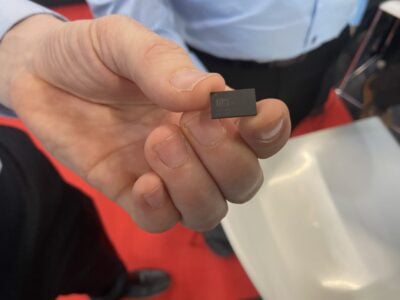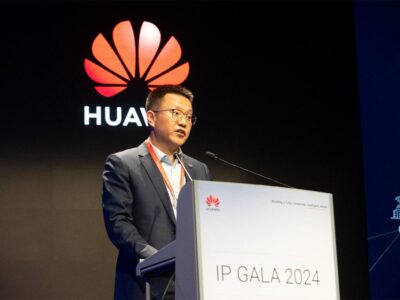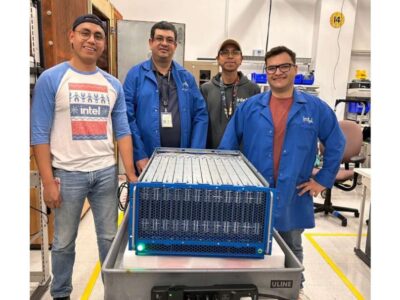
Massive €13bn EU budget to drive Europe’s space sector
The EU is to set up a €1bn startup fund for space technology as part of a major overall of its space policy.
This is part of a €13.2bn budget to drive major acceleration in space system development and deployment, from quantum and processing technology to a new launching rocket.
“This is the largest budget ever at EU level for Space,” said Commissioner Thierry Breton at the 13th European Space Conference. This is alongside current funding in the European Space Agency (ESA) and by member states, but will see a shakeup in Ariane and possibly in Airbus.
“We have agreed on the new EU space programme, the first of its kind for Europe,” said Breton. “Let me be crystal clear on one point: the European Space policy will continue to rely on ESA and its unique technical, engineering and science expertise. ESA will continue to be the European Agency for Space matters,” he said.
A key part of the strategy is the €1bn fund for startups called Cassini.
“I wish to position Europe as THE hub of space entrepreneurship in the world,” said Breton. “We do not have a coherent approach, rather a scattered and inefficient one. We are duplicating efforts by not being coordinated, we are wasting resources by not being organised. We are missing disruptive technologies by not working together.”
Cassini will cover the whole innovation cycle, from business idea to industrialisation, building on the €100m Space Equity Pilot launched last year.
“With Cassini, we want to stimulate more VC funds to actively invest in space companies in Europe, but also to get other industries to invest into space technologies and solutions,” he said. “We want also to organise a true European space incubator, relying on the strengths of all the actors but putting them into a coherent and integrated network.”
This may well be led from ESA’s headquarters at Darmstadt but should also be distributed across the continent
“I am also determined to enable the EU to act as a major anchor customer or first client for large and small projects, and I intend to put forward a large scale European in-orbit technology validation programme – joining force with ESA – to provide regular access to space to the most promising technologies to test them. This is will be a strong accelerator to innovation in Europe, and a driver to the necessary change of mindset,” he said.
The strategy will see a new broadband satellite constellation to take on the SpaceLink constellation from Space X and the UK/Indian OneWeb network and ensure coverage of Europe. These will have satellites in multiple orbits, from low to geostationary, with quantum encrypted links.
“This will keep the continent connected whatever happens, including massive attacks on the internet, which are no fiction anymore, especially with the emergence of the quantum computing capacities,” he said.
“My objective is to go fast,” said Breton. “To be ready, we launched a few weeks ago a study on a secure space-based connectivity system. The selected consortium consisting of European satellite manufacturers, operators and service providers, telco operators and launch service providers will study the possible design & development of this project.
A report on the project is expected by April.
“This is not a “business as usual” space project. It is broader. It will have to rely on the industry from different sectors,” he said.
In the short term, the second generation of Galileo GNSS satellites will launch by 2024, earlier than planned, and will link up with the Copernicus monitoring network.
“There was no time to lose on past technologies as we needed to project Europe into the next technological races. Yes it might entail more risks, but this is the new reality of space business. In Europe, we must learn to take more risks, to anticipate them, to mitigate them,” he said.
“I am glad that the industry understood this message, took up the challenge and put forward high quality proposals. Following the technical evaluation, the decision has been taken. It will be announced by the end of the month,” he added.
These new satellites will include digitally configurable antennas, inter-satellites links, new atomic clocks technologies and full electric propulsion systems. The new satellite broadband constellation will be able to enhance the Galileo system in the same way as proposals for OneWeb.
Ariane is set to lose out as a result of the new strategy for autonomous access to space to take on Space X in the US.
“For the first time, we will be able to use the EU budget to support the European launcher industry in the full chain: from earliest research on new propulsion technologies to long-term contracts for the launches of our EU satellites,” he said.
“Yes, we have fantastic EU launchers, competitive of the global stage, but the standards for launchers are currently being redefined outside of Europe. Europe cannot afford to be divided on this strategic questions. We need to be able to go beyond the national interests,” he said in a reference to the French government’s support for Ariane and its troubled Ariane 6 programme.
He points to the Gaia X project for developing European cloud technology.
“In the same way we did with GAIA X for the Cloud, we need to go beyond the cooperation between a limited number of countries, so I will gather in the next months all the actors to initiate a European Launcher alliance.”
 If you enjoyed this article, you will like the following ones: don't miss them by subscribing to :
eeNews on Google News
If you enjoyed this article, you will like the following ones: don't miss them by subscribing to :
eeNews on Google News




